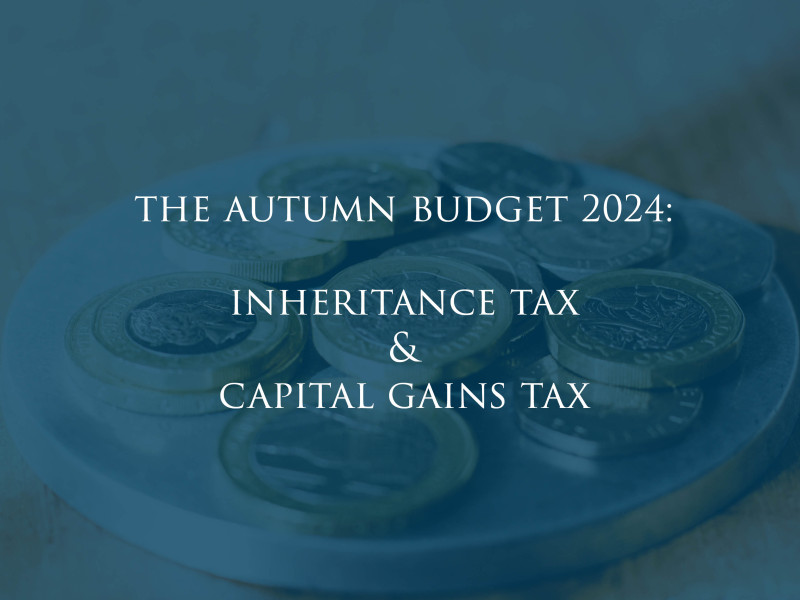What are the potential changes to Inheritance Tax and Capital Gains Tax in the Autumn Budget 2024?

In anticipation of next week’s budget, speculation is rife as to what possible changes we might see to Inheritance Tax (IHT) and Capital Gains Tax (CGT). This article considers some of the potential changes, and what they might mean for you.
Capital Gains Tax
What is Capital Gains Tax?
CGT is currently paid on the profit gained when disposing of an asset (such as selling, gifting, or swapping something) where the value has increased.
CGT is paid at a starting rate of 10% (18% on residential property) on profits above £3,000, and rises to 20% (24% on residential property) for higher rate taxpayers.
What changes to CGT can we anticipate?
It had been reported that Treasury Officials were planning a rise in CGT between 33%-39%. However, the Prime Minister has since dismissed speculation that the increase could be as much as 39%. Whilst we do not know what the final rate will be, a rise seems inevitable.
Inheritance Tax
What is Inheritance Tax?
Inheritance tax is currently paid at a rate of 40%, usually on the value of a deceased person’s assets above £325,000. Currently, only around 4% of deaths result in an inheritance tax liability, and it raises around £7 billion for the Government annually.
What changes to IHT can we anticipate?
Current speculation is that the most likely changes to IHT will be to the current allowances and exemptions. These include:
A person leaving their home to their children or grandchildren increases their IHT threshold to £500,000.
Married couples and civil partners can leave each other their whole estate tax free and can automatically inherit the other’s unused tax-free allowances.
This means that married couples and civil partners who leave a home to their children or grandchildren, currently don’t have to pay IHT unless their estates are worth in excess of £1million. Changes could see this threshold reduced.
Likewise, there are currently IHT reliefs for agricultural land, pension savings, unquoted shares and businesses.
In particular, the annual exemption and seven-year gifting could be subject to change. The annual exemption rule means that individuals have a personal allowance of £3,000/year to give away, IHT free.
Currently, if someone gives away more than their annual allowance and survives by seven years then the value of the gift will fall outside of their estate for IHT purposes.
It is thought that the Government may be looking to attack these reliefs, either by reducing or removing the annual allowance and increasing the number of years for which an individual will need to survive following a gift.
We do not know what the budget will bring, but it is the first year in a long time where nobody is asking “Do you think the Government will abolish Inheritance tax”.
Whatever changes the Government do decide on Wednesday 30 October, Leathes Prior are here to help you plan accordingly.


